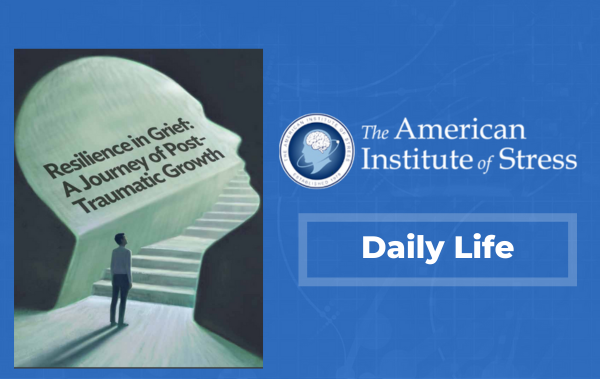Your mindset is your secret weapon to make the most of an unprecedented set of circumstances.
 Many of us across the globe are currently living under isolation and lockdown due to the Coronavirus crisis.
Many of us across the globe are currently living under isolation and lockdown due to the Coronavirus crisis.
While we can’t guarantee when things will get back to normal, we can be proactive about our mindset during this tough time.
Your mindset is your secret weapon to make the most of an unprecedented set of circumstances.
Will you crumble or thrive under the pressure? How will you spend your time while the crisis unfolds?
I hope the following four mindset tips will help you get through our current situation stronger and more successful than ever.
1. Understand Your Stress Response
If you want to thrive during a tough time, you need self-awareness about how you react to stress.
Not everyone has the same triggers and responses when life gets challenging.
Before you take up someone else’s strategy for this particular situation, look back at your personal history. Consider the following areas.
- Causes. Think back to past times of stress and crisis. Which situations or triggers particularly affected you? Are you likely to encounter similar causes of stress this time around?
- Responses. Have you responded to stress in different ways in the past? Were some more effective than others? Which responses might serve you at the present time?
- Prevention. As the saying goes, prevention is better than cure. What measures can you put in place during the current crisis? Consider limiting how you spend your digital time and also ensuring you have sufficient personal space.
Having a solid understanding of your past performance during a crisis will help you cope effectively at the current time.
2. Consider Your Circle of Concern/Influence
Often, an unproductive mindset during times of stress results from focusing on things we can’t change.
The current Coronavirus crisis makes it easy to get weighed down by the scale of the pandemic. Especially when we live in a world set up to monopolize our attention through rolling news and social media.
Stephen Covey wrote about our circles of concern and influence. We all have things we are concerned about but can’t influence. To be proactive, you need to aim to expand your circle of influence outwards into your circle of control.
So how can you apply this approach to the current situation?
- Note your concerns. Often, we let our concerns and worries exist at the back of our minds. We don’t necessarily know or understand them on a considered level. Take the time to proactively analyze your thoughts and worries so that you can begin to take control over them.
- Expand your influence. Now that you know your concerns, it’s time to consider your influence. How much influence do you currently have over the things that concern you? How could you gain more influence over each one? This helps you move from a place of reactivity to proactivity.
- Look to others. Even when we’re isolated, we don’t have to do everything on our own. If you’re not sure how to be more proactive about your concerns, look at how others are managing and follow their lead.
Your circles of influence and concern are powerful tools to stay mentally strong during the current situation.
3. Prioritize Mental and Physical Self-Care
Mental and physical performance are inextricably linked, so ensuring a productive mind/body relationship will help you through tough times.
- Regain perspective. A time of crisis, compounded by a time of isolation, makes it easy to lose perspective. We can indulge in cognitive distortions such as catastrophizing. If you find yourself losing perspective, take charge, and reframe your thinking.
- Avoid escapism. It’s vital to strike a balance between being driven while not being too harsh on yourself. If you notice yourself indulging in escapism, such as excessive distraction or anything else, take a second and consider what’s driving the impulse to escape. Moderate your time for pleasure so it doesn’t spill over into procrastination.
- Enrich your mind. If you are undergoing isolation, you might find your schedule is less full than usual. Consider allocating time for meaningful educational activities and growth. Working on your reading list, or making progress on a course, will fuel your sense of success even when times are tough.
By prioritizing our physical and mental self-care, we not only boost our overall health in the present moment, allowing us to come out stronger on the other side but also set an example for those around us.
4. Seek the Blessing in Disguise
By changing your mindset about the current crisis, and being proactive about all of the above steps, you give yourself the chance to not only survive the current situation but perhaps even use it to your advantage.
If you’re struggling to see how the crisis might be a blessing in disguise, consider the following points.
- Unique opportunity. The current situation is unprecedented. Such massive disruption naturally leads to chances for innovation and improvement. If you’re in isolation at the moment, challenge yourself to identify the opportunities open to you. A lot of my students are using this occasion to begin a specialized journaling process just for authors.
- Pursue passion projects. Do you have some dreams on your bucket list that you never seem to have the time for? If you’re in isolation, consider allocating a meaningful chunk of your schedule to something significant like outlining a book.
- Reallocate your time. Being removed from your normal routine also lets you reexamine the way you spend your time, both during the crisis and in the time after. Permit yourself to schedule time for the things you love or want to master, such as writing.
As tough as isolation during a crisis can be, seeking the blessings in disguise and making the most of them are your only real courses of action.
Mindset Tools and Resources
There are more tools and apps than ever before to help you manage your mindset. I’ve included a few related to each of the above sections to help you on your way.
- Stress. Stress self-assessment tools from the American Institute of Stress. A list of stress management apps from Inc.com.
- Concern/Influence. A guide to Covey’s Circles of Influence from Development Partnership.
- Self-care. A guide to self-care from Entrepreneur.com.
- Seeking blessings. A practice to help you find silver linings from Berkeley.edu.
Take charge of your mindset to stay focused even while locked down and isolated.
Even though we may be physically separate, we are all in this together. I wish you every success.
by Chandler Bolt





